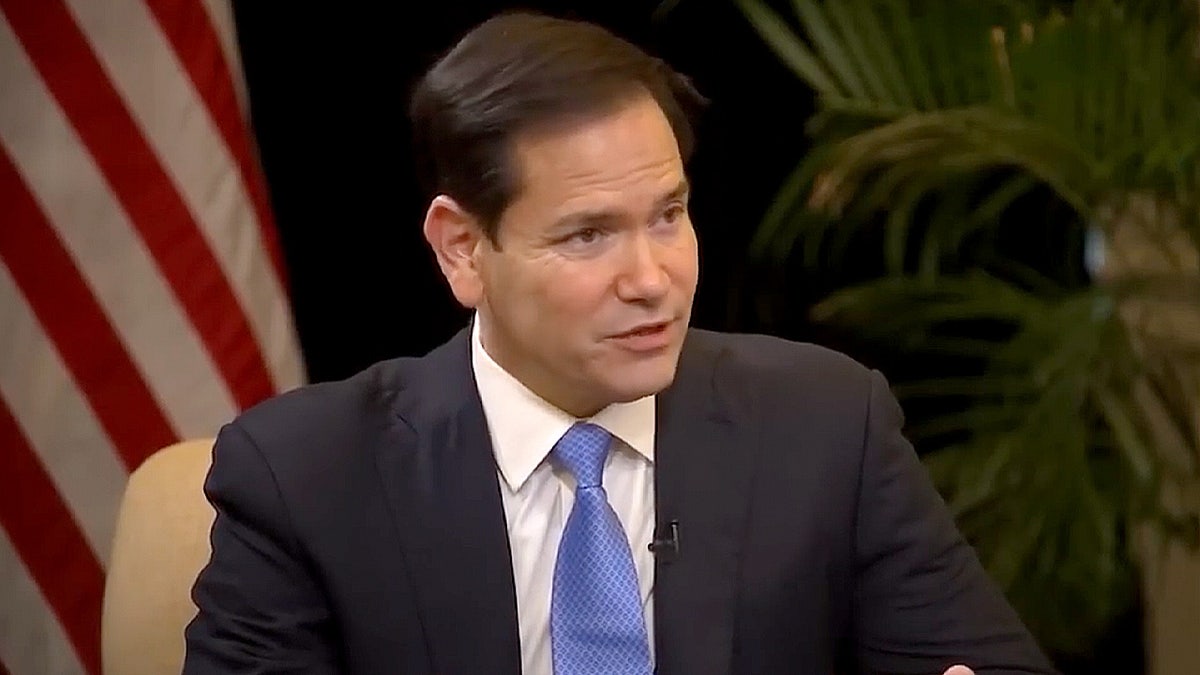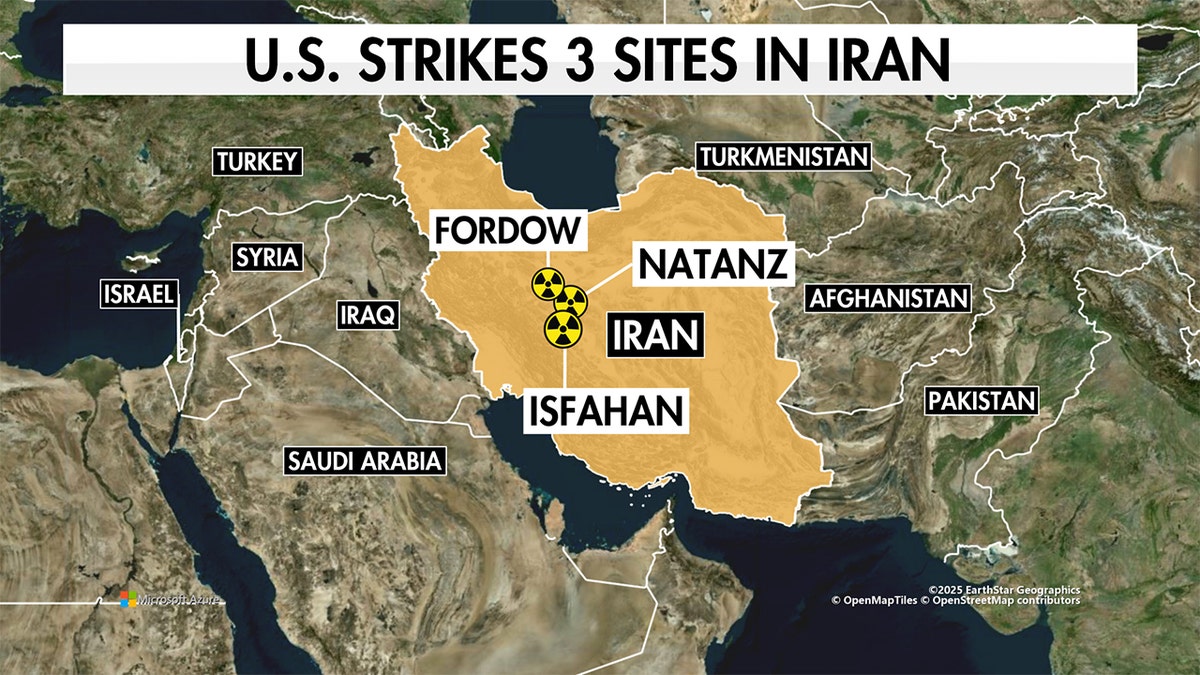

Secretary of State Marco Rubio on Wednesday condemned reports alleging that the U.S. strikes on Iran’s nuclear facilities didn’t do as much damage as the Trump administration has said.
In an interview with Politico at the NATO summit, Rubio refuted intelligence leaks that alleged minimal damage from the attacks, and hit media reports spreading those leaks.
"I would say that story’s a false story, and it’s one that really shouldn’t be re-reported because it doesn’t accurately reflect what’s happening," he told Politico White House bureau chief Dasha Burns.
PENTAGON FLEXES US MILITARY'S DECOYS AND STRATEGIC DECEPTION THAT TOOK IRAN AND WORLD BY SURPRISE

Secretary of State Marco Rubio discussed leaked reports of the US strikes on Iranian nuclear facilities with Politico's Dasha Burns on Wednesday. (Screenshot/Politico)
The U.S. military on Saturday carried out massive precision strikes on three key nuclear sites in Iran, including Fordow, Natanz and Isfahan, in an attempt to eliminate the threat of the country manufacturing a nuclear weapon. Long-range B-2 stealth bomber aircraft dropped 30,000-pound bunker-buster bombs on the locations in an attack that President Donald Trump called "a spectacular military success."
Burns sparked Rubio’s answer by asking about The New York Times and CNN reporting on intelligence leaks that the strikes did not completely destroy Iran's program but may have only delayed it a few months. Other experts have said the bombings must have done significant damage.
The Times report cited, published Tuesday, stated, "A preliminary classified U.S. report says the American bombing of three nuclear sites in Iran set back the country’s nuclear program by only a few months, according to officials familiar with the findings."
HEGSETH, MILITARY BRASS DESCRIBE ‘INCREDIBLE AND OVERWHELMING SUCCESS’ OF US STRIKES ON IRAN

The U.S. military struck three nuclear sites in Iran on Saturday June 21, 2025. (Fox News)
"The strikes sealed off the entrances to two of the facilities but did not collapse their underground buildings, the officials said the early findings concluded," the report added.
Trump has denied that reporting, calling it a "phony story" while talking to the press at the NATO summit.
Rubio weighed in, telling Burns that the leaks featured in the Times’ story don’t necessarily reflect reality, but are "often mischaracterized" and altered by someone’s spin.
"I can also tell you that intelligence leaks are one of the most frustrating things anywhere, not just because you have someone who has access to this and is putting stuff out there, but because it’s so often mischaracterized," he said.
"An intelligence report, for anyone who has ever seen it, sometimes is an assessment. Some analyst will make an assessment – or analysts will make an assessment – and in these leaks, what you typically have is someone who reads it and then leaks it to the media, giving it the spin and the angle they want it to have," Rubio continued.
He added that someone might leak the info for a variety of reasons, including to "embarrass the administration," or because they "were against the action."
Rubio then affirmed that because of the U.S. strikes in Iran, the "Iranian program – the nuclear program today – looks nothing like it did just a week ago. The program today has been set behind significantly from where it was a week ago."
